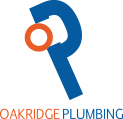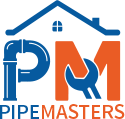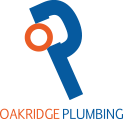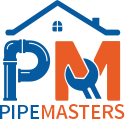Sewer Backup Causes
Backed up sewers can cause thousands of dollars in damage to floors, electrical systems, walls, furniture and other belongings. Today we'll cover causes of sewer backups, what you as a homeowner are responsible for maintaining and steps you can take to protect your home against sewer problems.
One sign of problems might be when you notice foul smells coming from your drains. In most areas you, the homeowner, are responsible for the maintenance and repair of the pipe from your house to the city sewer. Here are a few of some of the most common causes of sewer backups:
- Aging sewer systems: Our cities' sewer lines are on average over thirty years old. The increase in the number of homes connected to already aging sewage systems has also contributed to rapid increases in sanitary sewer backups, flooded basements and overflows.
- Combined pipelines: Problems arise in systems that combine storm water and raw sewage into the same pipeline. During many rain storms, the systems are exposed to more volume than they can handle, and the result is a sewage backup situation that allows sewage to flow into basements and other low lying drains.
- Tree roots: Seeking moisture, small roots of trees and shrubs make their way into sewer line cracks and service pipe joints, causing damage or blockages as they grow larger. The cost of the clean-up will fall to the problem tree's owner. When the issue is a result of a combination of city and private trees, the costs are sometimes split between the city and the property owner.
- Sanitary main blockages: A blockage can occur in a city sanitary main. If the blockage is not detected in time, sewage from the main can backup into homes and businesses through floor drains. If you see seepage at the floor drains, call a licensed plumber to assess the situation and the damage. If water is entering into your basement at a rapid rate, call the city public works office and report the problem immediately.
- Clogs: A buildup of an amalgamation of gunk in the drains can result in foul smells emanating from them or worse a backup situation. This gunk could include hair, food, toothpaste, oils and just about anything else that stays trapped in the drain.
- Blocks in the pipe: Sewer vent and drain pipes can become clogged.
What can you do?
- Properly dispose of grease. Cooking oil should be poured into a heat-resistant container and disposed of properly after it cools off, not in the drain. Washing grease down the drain with hot water is unsatisfactory. As the grease cools off, it will solidify either in the drain, the property owner's line, or in the main sewer causing the line to constrict and eventually clog.
- Properly dispose of paper products. Paper towels, disposable (and cloth) diapers, hygienic wipes and feminine products do not deteriorate quickly and can cause a great deal of trouble in the property owner's lateral as well as in the city main.
- Periodically cut tree roots. If you have continuing problems with tree roots in your lateral, you may have to regularly have the roots cut by a professional.
- Replace your line with new plastic pipe. Plastic pipe will prevent tree roots from entering your line is to replace your line and tap with new plastic pipe.
- Correct illegal plumbing connections. Do not connect French drains, sump pumps and other flood control systems to your sanitary sewer.
- Install a backwater prevention valve, which is a fixture installed into a sewer line (and sometimes into a drain line) in the basement of your home or business to prevent sewer backflows. A properly installed and maintained backwater valve allows sewage to go out, but not to come back in. A qualified plumber will make sure it's done right.
If you experience a sewer backup situation, immediately arrange for the cleanup of your property.
One of our experienced PipeMasters team can help you dealing with smelly sewer back-ups and fix what's causing them, contact us today at: info@pipemasters.ca or (289) 404-9063.
PipeMasters is part of Oakridge Plumbing Ontario Ltd. and serves the East GTA, Durham Region, North to Lindsay & Peterborough, out to Cobourg and all points in between. All rights reserved.
| Tags:Plumbing News |



